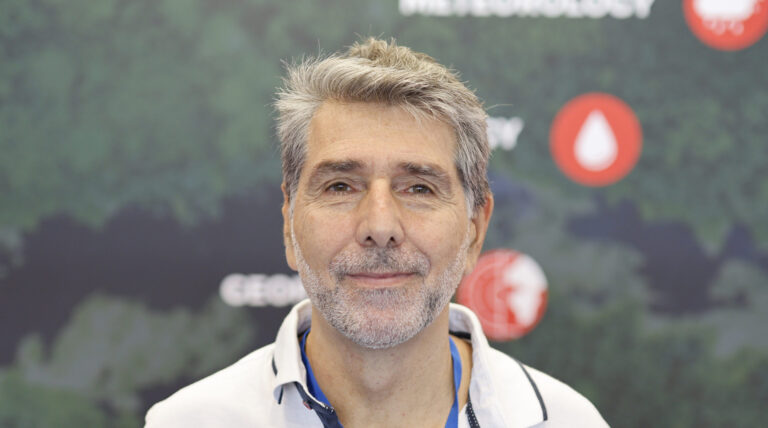Speaking on Day 1 at Meteorological Technology World Expo’s Open Tech Forum in Geneva, Giulio Certo, export manager at LSI Lastem, gave a presentation on heat stress monitoring in smart city applications.
Certo spoke about the increasing need to regenerate, redevelop and design urban contexts capable of proactively adapting to chronic and acute stress due to ongoing climate change, with the additional goal of population health protection. He argued that a proper choice of design measures and real-time information to citizens is possible through the measurement of a series of weather-climate quantities acquired before and after interventions and during the most acute phenomena, suggesting that the solution for early warning and analysis of these events is real-time outdoor heat stress measurement for risk prevention, with microclimate indices calculation.
The presentation addressed climate change’s impact on the microclimate and severe environments – indoors and in outdoor environments, and covered the norms and regulations surrounding outdoor heat stress and microclimate indices in real time as a way to monitor heat waves for early warnings. Certo went on to apply these points to smart city applications and weather measurements in urban environments, as well as monitoring technologies for health protection in hot countries.
During the presentation, Certo said, “Having in mind the complex combination of thermal exchanges to assess human thermal sensation, we cannot consider the air temperature only: we need to use thermal environment indexes. They are used in many applications but have recently also been used in so-called ‘smart cities’ where administrations are called to regenerate, redevelop and design urban contexts capable of proactively adapting to chronic and acute stresses due to ongoing climate changes.
“In this regard, thermal indexes are useful for designing and implementing strategies to protect at-risk populations against heat stress. They can be used to limit the exposure of outdoor workers; warn the more fragile population by advising them to reduce outdoor exposure; advise the population with respect to frequenting less hot areas of the city during their leisure time; assess the degree of heat, for the purpose of evaluating urban interventions carried out for its mitigation; evaluate the degree of heat for statistical and historical purposes; and as data inputs for urban microclimate model calculations.”
Don’t miss out on the meteorological show of the year – register now for your free entry pass and visit the website for the full exhibitor list and all the latest information.
Visit Booth 8070 to discover more about LSI Lastem, and read more expo news here



